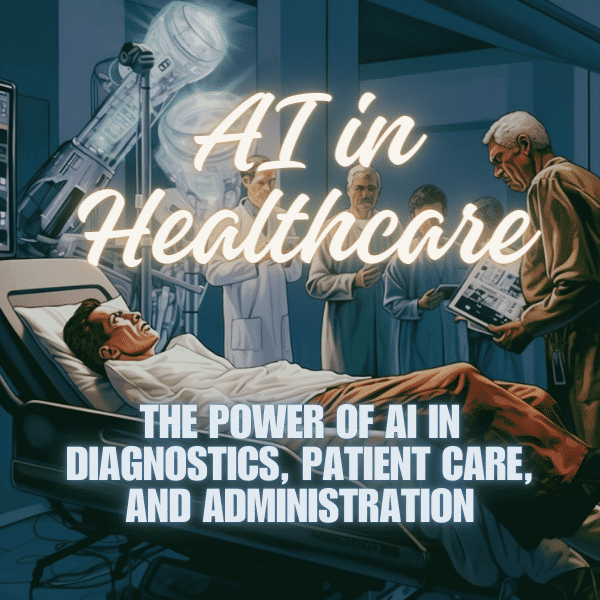Why you can trust Sunlight Media
- Expertise and Experience:Our content is crafted by seasoned professionals with extensive experience in digital marketing, ensuring you receive accurate and actionable advice.
- Unbiased Information:We provide impartial insights and recommendations based solely on what's best for your business, without any hidden agendas or promotions.
- Thorough Research:Our articles are backed by comprehensive research and the latest industry trends, ensuring you stay informed with reliable and up-to-date information.
- Transparency and Honesty:We believe in complete transparency. We disclose our sources, methodologies, and any potential conflicts of interest, so you can trust the integrity of our content.
- Continuous Improvement:We constantly review and update our content to reflect the latest developments in digital marketing, so you always have access to the most current and relevant information.

Imagine a world where cutting-edge AI technologies are seamlessly integrated into healthcare, enhancing patient care, streamlining workflows, and improving health outcomes. That world is not a distant dream; it’s our reality in 2023. As the potential of AI in healthcare continues to unfold, we are witnessing a shift in medical diagnostics, patient care, and healthcare administration. This blog post will explore the power of AI in healthcare through machine learning, natural language processing, and other revolutionary applications, demonstrating how it is transforming the healthcare landscape.
Key Takeaways
- AI is revolutionizing healthcare delivery with improved accuracy and efficiency in medical diagnostics, radiology imaging, pathology diagnosis, virtual health assistants and remote monitoring.
- Ethical considerations such as data privacy must be addressed to ensure successful AI adoption in healthcare.
- Barriers to implementation can be overcome by integrating AI into existing IT systems, gaining physician acceptance and navigating regulatory requirements.
The Growing Role of AI in Medical Diagnostics

Artificial intelligence is becoming a crucial tool for medical professionals, as machine learning and deep learning techniques are widely used in radiology imaging, pathology, and to enhance diagnostic accuracy. Potential benefits of AI in healthcare encompass minimization of human error, support for medical professionals, and round-the-clock patient services.
As healthcare industry integrates AI technology into clinical workflows on a large scale, its benefits like improved diagnostics and efficient workflows are becoming increasingly clear.
AI for Radiology Imaging
The implementation of AI in radiology imaging has revolutionized the detection of cancerous lesions and other abnormalities. Training AI on a vast set of images allows it to detect issues more accurately and efficiently, sometimes even surpassing human experts. AI-driven technologies, such as automated and computer-aided detection systems (CAD), machine learning algorithms for analyzing medical images, and AI tools for screening tests, are employed in radiology imaging for cancer detection. For instance, a research team from the University of Hawaii found that using deep learning AI (artificial intelligence) technology could augment breast cancer risk prediction.
AI’s edge over human experts in radiology imaging extends beyond cancer detection. Its capacity to analyze millions of images allows it to identify other abnormalities as well, providing invaluable insights for healthcare providers. With AI’s ever-growing potential, we can anticipate even greater leaps in improving health outcomes and transforming the radiology landscape.
AI in Pathology
In pathology, AI (artificial intelligence) applications have proven to be invaluable in analyzing tissue samples, recognizing patterns, and supplying more precise diagnoses. AI is employed in several ways, such as:
- Evaluating complex datasets obtained through analysis to rapidly assess whether a biopsy sample contains cancerous tissue or not
- Improving diagnostic tools that examine biopsied tissue samples
- Prioritizing cases before they are sent to pathologists for review
In essence, AI enables a more accurate, quicker, and robust diagnosis process in pathology.
AI’s impact on diagnostic accuracy in pathology is substantial. For example, a published study concluded that AI was more accurate than experienced doctors in diagnosing skin cancer. Furthermore, researchers from the US, Germany, and France employed deep learning on over 100,000 images to identify skin cancer, showcasing the transformative potential of AI in pathology.
Improving Diagnostic Accuracy
The capacity of AI (artificial intelligence) to enhance diagnostic accuracy extends beyond radiology and pathology. Analyzing large datasets, reducing human error, and facilitating personalized treatment plans, AI makes a significant impact on healthcare delivery and patient outcomes. Precision medicine is one such example, wherein machine learning is employed to predict the efficacy of treatment procedures for patients based on their individual characteristics and the treatment framework. Additionally, natural language processing (NLP) enables physicians at the Fred Hutchinson Cancer Center to review 10,000 medical charts per hour to accurately identify patients who meet the specified inclusion criteria, thus relieving them of the burden of manual labor.
Supervised learning, the most widely used AI (artificial intelligence) technology in healthcare, leverages machine learning and precision medicine applications, using medical images and clinical data for training, where the outcome is known in advance. Embracing AI and leveraging its potential allows healthcare professionals to make more informed clinical decisions, which results in improved patient outcomes and a more efficient healthcare system.
Enhancing Patient Care with AI Technologies

AI technologies can revolutionize patient care by offering various forms of assistance, including virtual health assistants, remote health monitoring, and AI-driven treatment recommendations. A deeper exploration of these AI (artificial intelligence) applications will reveal how they enhance the patient experience and contribute to both improved health outcomes and more efficient healthcare delivery.
Virtual Health Assistants
Virtual health assistants, powered by natural language processing and machine learning, are revolutionizing the way patients access healthcare information and services. From personalized health advice to symptom checking and appointment scheduling, these AI-driven assistants provide support and assistance whenever and wherever it’s needed. By automating and improving the efficiency of various tasks, AI (artificial intelligence) chatbots can enable providers to prioritize their time and help patients receive answers to straightforward questions quickly and accurately.
In addition, AI plays a vital role in symptom checking and triaging, assisting providers in distinguishing which patients require emergency care versus those that can be addressed by a primary care physician. Popular examples of virtual health assistants include:
- Apple Siri
- Amazon Alexa
- Microsoft Cortana
- Google Assistant
With the continuous development and improvement of AI technologies, virtual health assistants are poised to become an integral part of healthcare delivery and patient care.
Remote Health Monitoring
Remote health monitoring with AI (artificial intelligence) is transforming patient care by analyzing real-time health data, detecting potential health risks, and supporting clinical decision-making. AI-driven remote health monitoring technologies, such as Remote Patient Monitoring (RPM), Machine Learning (ML)-based software, Patient mobile apps, and Clinician dashboards, enable healthcare providers to make informed decisions, monitor patient conditions, and improve patient outcomes.
As the healthcare landscape evolves, remote health monitoring will play an increasingly crucial role in delivering efficient and effective care. By leveraging AI (artificial intelligence) technologies, healthcare providers can:
- Ensure early intervention capabilities
- Enable real-time monitoring of health conditions
- Facilitate early detection of potential issues
- Enhance accuracy and efficiency of healthcare delivery
- Provide personalized treatments
- Achieve cost-effectiveness
- Analyze valuable healthcare data
The integration of AI (artificial intelligence) in remote health monitoring offers a promising future for patient care and healthcare systems worldwide.
AI-Driven Treatment Recommendations
AI-driven treatment recommendations are becoming increasingly commonplace in the healthcare industry, providing healthcare providers with data-driven insights to make informed decisions about patient care. Examples include:
- Medical image analysis
- Virtual assistants
- Predictive analytics
- Personalized treatment recommendations based on patient data
The advantages of AI-driven treatment recommendations include increased precision and productivity in healthcare decision-making, enhanced patient safety, and decreased expenses.
However, AI-driven treatment recommendations are not without challenges. Accurate data, algorithmic bias, and patient privacy must be addressed to ensure the responsible and effective implementation of artificial intelligence in healthcare. By tackling these issues and embracing AI-driven treatment recommendations, healthcare providers can improve patient outcomes, reduce costs, and deliver more personalized care.
AI-Powered Innovations in Healthcare Administration

AI-powered innovations in healthcare administration are revolutionizing the way healthcare organizations manage their operations, from automating electronic health records management to optimizing revenue cycle management and enhancing patient communication.
As we explore these AI-driven innovations, we will unveil the transformative potential of AI in healthcare administration and its impact on healthcare delivery.
Automating Electronic Health Records Management
AI is playing a pivotal role in automating electronic health records (EHR) management, reducing errors and streamlining workflows for medical professionals. EHRs serve as a critical component of modern healthcare delivery, and AI’s capacity to evaluate patient data and relevant information to detect potential errors or inconsistencies in the records is invaluable. By automating the process of managing and analyzing EHRs, AI (artificial intelligence) decreases the workload for healthcare professionals and boosts the accuracy of record-keeping.
In summary, artificial intelligence technology improves EHRs and contributes to decreasing medical errors in healthcare settings.
AI systems can also assist in reducing duplicate records and errors in patient identification, ensuring that healthcare organizations have accurate and up-to-date medical records when making clinical decisions. By incorporating AI (artificial intelligence) into EHR management, healthcare organizations can achieve greater efficiency, cost savings, and improved patient care.
AI in Revenue Cycle Management
AI is transforming revenue cycle management in the healthcare industry by optimizing billing processes, claims management, and payment administration. By automating these processes, AI can reduce the time and effort associated with billing and claims management, while also detecting errors to ensure accuracy. As a result, healthcare organizations can achieve cost reduction, enhanced accuracy, and increased efficiency.
In addition to improving billing and claims management, artificial intelligence can be employed in payment administration, cutting down the time and effort needed to complete the task while detecting mistakes and ensuring accuracy. By embracing medical AI technologies in revenue cycle management, healthcare organizations can streamline their operations and focus on delivering high-quality patient care.
Enhancing Patient Communication
Effective patient communication is essential for delivering high-quality healthcare, and AI technologies are revolutionizing the way healthcare providers interact with patients. AI-powered chatbots and Natural Language Processing (NLP) algorithms are employed to improve patient communication in healthcare, providing personalized support and assistance.
Medical AI plays a significant role in:
- Enhancing patient care
- Building trust relationships
- Improving communication
- Enhancing person-centered care
- Processing healthcare data more efficiently
- Revolutionizing disease diagnosis and treatment
By harnessing the power of AI technologies, healthcare providers can facilitate more effective interaction between patients and healthcare providers, ultimately improving patient outcomes and satisfaction.
Ethical Considerations for AI in Healthcare

As AI continues to permeate the healthcare industry, it is essential to address the ethical considerations that accompany its implementation. Ensuring patient data privacy, promoting transparency and accountability, and addressing algorithmic bias are crucial aspects that must be considered to guarantee the responsible and effective use of AI in healthcare.
In the following sections, we will explore these ethical considerations in greater detail and discuss potential solutions to address them.
Ensuring Patient Data Privacy
Patient data privacy becomes a significant concern when AI systems handle sensitive health information, necessitating robust security measures and compliance with privacy regulations. AI systems need to comply with privacy regulations, such as the European Union’s General Data Protection Regulation (GDPR), which enforces rules on the collection, processing, and storage of personal data, including health data.
To ensure patient data privacy, healthcare research organizations can take several measures, such as employing generative data and implementing specific regulations and safeguards. By prioritizing data privacy and adhering to regulatory requirements, healthcare organizations can build trust with patients and ensure the responsible use of AI technologies in healthcare.
Promoting Transparency and Accountability
Transparency and accountability are essential in fostering trust between healthcare providers and patients, ensuring responsible AI use. In order to promote transparency and accountability, healthcare organizations can:
- Establish moral accountability
- Ensure safety
- Promote transparency
- Demonstrate responsible local leadership
- Foster continuous learning and improvement
Additionally, case studies, such as those conducted by the Ada Lovelace Institute, and research exploring AI ethics in healthcare, emphasize the importance of principles like accountability and transparency.
By adopting these principles and involving physicians in the development and implementation of AI solutions, healthcare organizations can ensure transparency and accountability in their AI systems. This, in turn, promotes trust and confidence in the use of AI technologies among patients and healthcare providers.
Addressing Algorithmic Bias
Mitigating algorithmic bias in AI healthcare applications is essential to prevent unfair treatment and guarantee equitable healthcare outcomes for all patients. AI healthcare applications can potentially exhibit data-driven bias, algorithmic bias, and human bias. To detect and address algorithmic bias, healthcare organizations can analyze the data used to train the AI system, evaluate the outcomes and predictions of the AI system across different demographic groups, and conduct audits and reviews of the AI system’s decision-making processes.
Collaboration between data scientists, healthcare professionals, and ethicists is essential for detecting and addressing algorithmic bias in AI healthcare applications. By implementing measures to reduce or eradicate algorithmic bias, healthcare organizations can ensure fair and equitable treatment for all patients.
Overcoming Barriers to AI Adoption in Healthcare

While AI holds immense potential in revolutionizing healthcare, there are several barriers to its adoption, including integrating AI with existing IT systems, gaining physician acceptance, and navigating regulatory requirements.
In the following sections, we will discuss these barriers in depth and explore potential solutions to overcome them, ensuring the successful implementation of AI in healthcare.
Integration with Existing IT Systems
For a successful AI implementation and to maximize its benefits in healthcare settings, seamless integration with existing IT systems is crucial. Healthcare organizations often face challenges in incorporating AI systems into their existing infrastructure, such as:
- Interoperability
- Inadequate medical data quality
- Data privacy and security considerations
- Ethical and legal considerations
- The need for training and education.
To address these challenges, healthcare organizations can:
- Partner with AI companies
- Secure access to high-quality medical data
- Adhere to standardized care processes
- Scale up AI tools
- Integrate them into various healthcare settings
- Effectively manage the transition to AI integration
By taking these steps, healthcare organizations can overcome barriers to AI adoption and fully harness its potential in improving patient care and healthcare delivery.
Gaining Physician Acceptance
Securing physician acceptance of AI technologies is crucial for their effective implementation in healthcare. To gain physician acceptance, the following steps are essential:
- Education: Providing physicians with information about AI technologies and their benefits in improving patient care.
- Collaboration: Involving physicians in the development and implementation of AI technologies to ensure their input and buy-in.
- Demonstrating value: Showing physicians how AI can enhance their practice and improve patient outcomes.
- Addressing misconceptions: Clearing up misconceptions about AI, such as the belief that AI will replace doctors or that implementation is hard and expensive. By taking these steps, healthcare organizations can build trust and facilitate acceptance of AI among physicians.
Involving physicians in the development and implementation of AI solutions can also foster acceptance by ensuring that AI systems align with their workflows and address their needs. By addressing these barriers and providing education and training, healthcare organizations can facilitate the acceptance and integration of AI technologies into clinical practice.
Navigating Regulatory Requirements
For AI adoption in healthcare, navigation of regulatory requirements is crucial to ensure compliance with safety, privacy, and ethical standards. AI systems must adhere to various regulations, such as the General Data Protection Regulation (GDPR) and the Health Insurance Portability and Accountability Act (HIPAA), which govern the collection, processing, and storage of personal data.
Healthcare organizations can effectively manage these regulations by:
- Conducting comprehensive audits and assessments of AI systems
- Implementing robust security measures
- Adhering to breach notification requirements
- Exploring de-identification techniques
- Keeping abreast of new guidelines and regulations
By addressing regulatory requirements and ensuring compliance, healthcare organizations can successfully implement AI technologies and improve patient care.
Summary
Throughout this blog post, we have delved into the power of AI in healthcare, exploring its role in medical diagnostics, patient care, and healthcare administration. From radiology imaging to pathology, virtual health assistants to remote health monitoring, and automating electronic health records management to enhancing patient communication, AI technologies are revolutionizing the healthcare landscape. By addressing ethical considerations, overcoming barriers to adoption, and navigating regulatory requirements, healthcare organizations can harness the transformative potential of AI, ultimately leading to better patient outcomes and a more efficient healthcare system.
Frequently Asked Questions
How is AI being used in healthcare?
AI is being used to detect diseases faster, provide personalized treatment plans and automate processes such as drug discovery or diagnostics. It is also helping healthcare professionals collect and analyze information to provide data-driven insights and improve drug safety. By leveraging AI, organizations can improve patient outcomes, increase safety and reduce healthcare costs.
Is AI going to replace doctors?
AI won’t be replacing doctors anytime soon and it may actually have the potential to improve the quality of medical practices. AI could help doctors make better decisions, leading to improved patient health outcomes, but caution is needed in its development and use.
How is AI used in healthcare 2023?
By 2023, AI-driven medtech will have advanced significantly, able to identify abnormalities, recommend treatments, and continuously monitor health. This use of AI in healthcare can prove to be greatly beneficial for patient outcomes.
How is AI enhancing medical diagnostics?
AI is significantly improving medical imaging diagnostics through its ability to accurately detect cancerous lesions, abnormalities and provide more precise diagnoses in radiology imaging and pathology.
How can AI improve patient care?
AI can provide personalized support and assistance to patients through virtual health assistants, remote health monitoring, and AI-driven treatment recommendations, enhancing patient care significantly.









